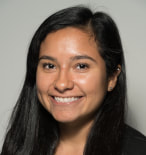2021 MINI-GRANT WINNERS
Awarded research projects are in alignment with the Center mission focusing on teacher development and learning, the study of teaching and teacher professional practice, and of the systems in which these are embedded (including school and district leadership).
10
Mini-Grants
Awarded
$10,788
Dollars Funded
33
Collaborator
AWARDED RESEARCH PROJECTS

Jiwon Lee | Doctoral Candidate
Collaborators: R. Santagata, J. Guarino, D. Cox, J. Drake
School-Wide Improvement in Mathematics (SWIM): Unpacking Key Levers for Building Trust and Supporting the Practice Organization
SWIM is a research-practice partnership aimed at improving students’ mathematics learning at Title-I elementary schools in a diverse school district. The project involves a district administrator, a school principal, teachers, a mathematics coordinator from the County Department of Education, and two graduate researchers Phase one of the improvement work is centered around 4 goals: (1) Develop a shared vision of high-quality mathematics instruction; (2) Support teacher learning of responsive teaching; (3) Foster student engagement and learning; (4) Develop collaborative spaces for learning. Through this initial phase, we present our process of building trust and supporting the school/districts’ goals through the development of a shared vision of mathematics teaching and learning, the creation of stable settings for collaboration, and the ongoing negotiation of tensions and challenges.

Jonathan Montoya | Doctoral Student
Collaborators: S. Garcia, R. Lundell
The Ethical Prerogative: Teacher as Social Agent Confronting the Pandemic
This project aims to conduct follow up interviews with secondary teachers teaching throughout the pandemic. At the onset of the pandemic, initial interviews were conducted that focused on uncovering the ethical implications of teaching during these circumstances. Through these follow up interviews, I hope to examine: 1) what has changed for these teachers and students, 2) what lessons have been learned, and 3) what extra burdens practitioners bear in terms of teacher preparation. The funding provided by this mini-grant will be utilized to compensate instructors with a $50 amazon gift card for interviews and transcription fees.

Khamia Powell | Doctoral Candidate
Collaborators: J. Eccles, A. Villavicencio,
3 undergraduate research assistants
The Influence of Immersive Experiences on Culturally Responsive Pedagogy:An Explanatory Mixed Methods Study
This study proposes immersive experiences as a method to promote, motivate, and support the enactment of CRP (Culturally Responsive Pedagogies). Immersive experiences are opportunities for teachers to engage in critical experiences that utilize perspective-taking to promote deeper understanding and critical reflection of themselves, their practice, and their students of color. Thirty high school teachers will participate in a transformative 8-week professional development that uses immersive experiences to cultivate empathy and color consciousness. Data includes pre-post surveys on teacher empathy and racial perspectives to determine to what extent immersive experiences develop empathy and color consciousness (RQ). Additionally, qualitative interviews, artifacts, and classroom observational data will determine how immersive experiences promote the enactment of culturally responsive practice (RQ). The current study offers immersive experiences as a method to effectively bridge the gap between CRP theory and practice, thereby enabling teachers to leverage empathy and color consciousness as tools to effectively meet the growing, shifting, needs of a multicultural student body, while lessening the impact of cultural mismatch and promoting diversity.

Kelley Le | Director UCI Science Project
Collaborators: UCI Science Project Team
Engineering Classroom Ambassadors Program
This mini grant will allow for two separate studies to be conducted. The first study proposes new program developments in collaboration with OCSTEM to place clusters of engineering undergrads with secondary science engineering teachers as classroom “ambassadors” to build capacity for both parties. There are specific parameters in place (placing at Title 1, over 80% of school pop. identifies as BIPOC, OC schools, etc.) to ensure that we are tending to equity in expanding the STEM pipeline. They will co-plan, co-teach, co-design for the entire year to see if that builds confidence and capacity in the secondary science teachers who are not trained in engineering but are required to teach about it through the NGSS.
The second study is in collaboration with UCISP in developing a pilot program where we partner with 2 UCI faculty or grad students in the Earth and Space Sciences or Civil and Environmental Engineering departments. In this project, we are creating 2-week programs for students under the guidance of the faculty/grad student researcher so that students can learn about and experience authentic science and engineering research projects. We hope that through these university collaborations, we can explore potential student impacts. We will actively recruit underrepresented minority students from Title 1, low-income districts.

Socorro Cambero | Doctoral Student
Collaborators: D. Zinger, J. Ahn, A. Villavicencio, Magnolia High School Science Teachers
Identifying Humanizing Instruction in High School Science Classrooms
Humanizing and culturally responsive pedagogies and practices have been identified as approaches that can promote equitable science instruction. In order to support meaningful science learning, researchers must understand how teachers are integrating students’ experiences, including the contexts and histories of their communities in their instruction. Through a partnership between researchers from the School of Education and Science teachers at Magnolia High School, this study will fill gaps in the literature by exploring the specific practices that create meaningful, scientific learning experiences for non-dominant students.
Classroom observations will be conducted to explore the practices that teachers employ in their instruction. Semi-structured interviews with teachers will gather insight on how teachers understand the practices they employ. Researchers will work in partnership with teachers to improve the cultural relevance of instruction based on collaboratively identified challenges. Two questions guide this inquiry: (1) How do teachers understand and perceive culturally responsive pedagogies? (2) How do teachers employ culturally responsive pedagogies?
Our goal is to both support improvement with the partner site, as well as inform the broader field of how improvement of culturally responsive science teaching can take place. We conjecture that a collaborative and systemic approach can bring improvement and develop a process that can then be replicated elsewhere.

Ethan Rubin | Doctoral Student
Collaborators: B. vanEs, E. Mendoza,
UCI CoATTEND Cohort
Crafting Representations of Practice: Designing Web-Based Case Study Modules to Support Teacher Noticing for Equity
This project is an extension of a study of teachers noticing for equity through a participatory action research approach. In order to apply the findings of this work to teacher preparation, the extensive data and insights produced must be; 1) translated into a form that is accessible and intelligible for pre-service and early career teachers, 2) preserves the authenticity of participating teachers’ experiences and development, and 3) allows for the inquiry mindset that enables teachers to engage equitably with students. To achieve these goals, we have engaged in a structured collaborative design process, adapted from the conventions and practices of the User Experience (UX) field, to craft web-based case study modules that make the experiences and perspectives of our original teacher participants available for exploration and inquiry in pre-service and early career teacher development programs.
To date, the research team has designed two prototype modules, which were piloted in a course for single-subject secondary candidates in UCI’s MAT program.These initial users tests yielded positive responses and valuable design feedback, which now inform efforts to improve and expand on the modules. In the upcoming term, the team has the opportunity to conduct a more formal study of the modules in a teacher certification course at CU Boulder. We intend to review data collected during the initial user testing to improve on the prototype design, create 2-3 additional modules, and collect data to analyze from CU Boulder students through feedback mechanisms in the module and through interviews.

Jacob Steiss | Doctoral Student
Collaborators: J. Aubele, N. Gilbertson, A. Wemmer
Developing Students’ Media Literacy for Civic Engagement
This study, consisting of a team of researchers and educators, are currently designing and offering professional learning opportunities to help secondary teachers incorporate digital literacy into their curricula. The Media Literacy Collaborative’s main purpose is to work with teachers to prepare students to critically navigate an increasingly complex information society. The group has successfully offered media literacy workshops, but seeks to partner with educators in a more sustained way, by developing research-practice partnerships that solve local problems of practice as local teachers implement media literacy instruction in their classrooms. These partnerships will leverage the expertise of classroom teachers and researchers to test, implement, and refine instruction that helps students 1) become critical consumers of information in diverse formats and 2) transfer historical thinking and critical reasoning skills to authentic social and civic issues in their worlds. The RPPs will also allow for the development and testing of instructional modules that 1) change students stances towards how knowledge is constructed, 2) can be adapted to a variety of classroom contexts, 3) show measurable growth in student’s epistemologies and reasoning skills related to adaptive media literacy practices.

Adriana Villavicencio | Assistant Professor
Collaborators: J. Ahn, R. Santagata, C. Wegemer
Reimagining Educational Equity and Opportunity (REEO) during the COVID 19 Pandemic
Existing disparities in educational opportunities in low-income communities of color have been exacerbated by COVID-19 and the transition to remote learning. This OCEAN project is designed to achieve two key goals: 1) document and synthesize the nuanced approaches that different communities are taking to best support students in Orange County during this unique time; 2) provide targeted support through the creation of a Networked Improvement Community (NIC) composed of UCI School of Education researchers, school and district leaders, and community members. I am currently leading one of REEO’s four community task forces, wherein I have brought three district leaders together (from Anheim, Compton, and Santa Ana) as well as a leader from the Center for Educational Partnerships to collaboratively identify a shared problem and generate possible solutions. The focus of our task force is increasing student attendance/student engagement by decreasing technological barriers facing Spanish speaking families who want to support their children with online instruction. Together, we created a set of learning goals for a three-module webinar that will provide families fundamental training and resources in basic computing, internet use, school-based platforms, and strategies for supporting remote instruction. We are seeking additional funds to translate the module materials (which will be made available on the districts’ websites) and compensate the instructor delivering the webinar.

Ha Nguyen | Doctoral Student
Collaborators: Crystal Cove Conservancy, R. Santagata,
J. Ahn
Designing Adaptive Systems to Promote Systems Thinking in Collaborative Discussion
The COVID-19 pandemic has brought challenges that teachers face in maintaining high-quality discourse and student engagement in online science classrooms. To address this challenge, I am developing a conversational agent (chatbot) that can embed itself into student collaborative discussions in order to provide automated conceptual prompts and encourage student’ participation. The project represents a partnership between UCI, School of Biological Sciences, Crystal Cove State Park, and high school teachers serving a majority Hispanic, Title-I schools in Orange County. The project involves two phases: (1) Co-design with teachers and state park educators to understand the learning analytics pipelines, and (2) Pilot in classrooms to understand how different designs may influence the uptake and learning outcomes for different student populations. Through this research, educators will (1) conduct analytics tasks to calibrate their answers with the different algorithms, (2) view different types of visualizations that explain the algorithms and the uncertainties inherent in the analytics, and (3) “teach” the agents to adapt to their classroom contexts. The research examines ways human and AI can augment each other’s decision-making space in promoting science discourse. It also has technical implications for ways to incorporate humans in the loop to refine algorithmic decision-making.

Rossella Santagata | Professor
Collaborators: A. Villavicencio, C. Wegemer, L. Cawelti,
3 undergraduate research assistants
Reimagining Educational Equity and Opportunity (REEO) Survey Study
This project aims to document and understand variability of teacher experiences with online instruction during the COVID 19 pandemic. The study focuses on two research questions: (1) What variability in instructional responses to the pandemic is present among elementary school teachers in Orange County? (2) What explains this variability, particularly as it relates to instructional innovations and opportunities? A survey was developed that included rating questions centered on school/district support for remote instruction, teacher collaboration, teacher self-efficacy for use of educational technology, and perceived effectiveness and student engagement and learning and open-ended questions about innovation/learning opportunities and necessary additional support. The research team has recruited teachers from two local school districts and collected responses from 350 elementary school teachers. Teachers were compensated with a $20 gift card for their participation. Findings will identify factors and systems of support that facilitated teacher work during the emergency as well additional resources needed. In addition, the study will also highlight opportunities for innovation and professional growth that teachers have identified.